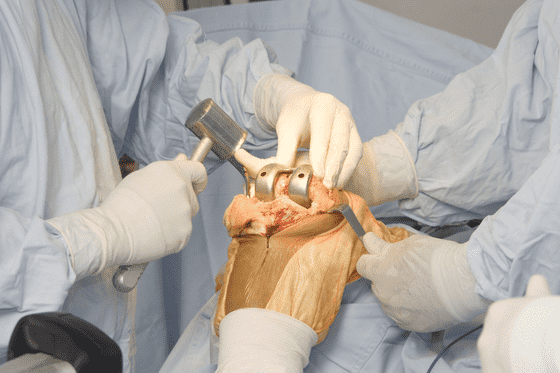
The Difference Between an Orthopedic Surgeon and a Doctor
 Posted On
Posted On
Remember that show “Different Strokes?” It’s an old sitcom that taught us the lesson, “Different strokes for different folks.” The same is true in the medical world. There are many different positions, each of which requires a unique set of skills and knowledge to be successful. Every person in medicine has their own specialty and works hard to stay educated about advancements so they can provide the best care possible for their patients.
The most obvious division among those working in medicine is between doctors and nurses. Doctors typically have more education than nurses do but both roles are essential when it comes to providing patient care.
Doctors diagnose diseases, prescribe medications, order tests or treatments if necessary as well as educate patients on how they can better manage conditions, such as pain management either through lifestyle modifications or medication adherence programs while nurses work with doctors to ensure that all plans created by physicians are followed properly by both staff members and patients alike.
In addition, there is also a large number of other specialists within healthcare including pharmacists who dispense drugs prescribed by doctors; physical therapists who help rehabilitate people after injuries; dietitians who assist people with improving nutrition habits; psychologists/psychiatrists/social workers (or mental health clinicians) helping individuals address emotional issues like depression or anxiety often caused by illnesses; and radiologists, who specialize in radiology & imaging such as x-rays or MRI scans to diagnose conditions.
Among these specialists, the orthopedic surgeon stands out from the rest. Orthopedic surgeons are medical doctors with additional training in the diagnosis and treatment of musculoskeletal injuries. Let’s take a look at what makes an orthopedic surgeon different from a doctor and how important this specialization is.
What it Takes to Become a Doctor in General
Becoming a doctor, as you might assume, is no easy feat. The path to becoming a doctor is long and arduous, requiring many years of education and experience. To become a doctor you must have an undergraduate degree in pre-medicine or any other related field such as biology, chemistry, or physics.
Then it’s onto medical school for four more years of specialized training in medicine followed by another three to seven depending on the specialty chosen for residency training where doctors are able to treat patients under the supervision of experienced physicians.
Here is a detailed list that outlines all schooling that is needed before one can become a doctor:
- Pre School
- Preschool is the level of schooling before one even gets into elementary school, usually for ages 3 to 5.
- Elementary School
- This is the first level of formal education, typically for ages 6 to 11.
- Middle School/Junior High
- The next step in educational life is usually for ages 12-14 or 15 depending on the school district’s structure.
- High School
- An important part of a person’s education and development, typically for grades 9-12.
- Undergraduate College
- This is the next step after high school, typically 4-5 years of college before medical school.
- Medical School
- A four-year program to learn more about medicine and prepare for residency training, which can take another 3 to 7 years depending on the specialty chosen.
- Graduate school:
- Depending on the specialty chosen, some doctors may choose to pursue a master’s degree or a Ph.D.
- Residency:
- This isn’t technically schooling, but most doctors need to complete 3 to 7 years of residency training where they are able to treat patients under the supervision of experienced physicians.
After completing medical school, a doctor must then pass their state’s licensing exam before they can practice medicine. Doctors must also adhere to continuing education criteria in order for them to maintain their licenses and stay up-to-date on the latest developments in the medical field.
But having just book smarts isn’t enough to become a successful doctor; it takes personal qualities such as empathy, bedside manner, and excellent communication skills. Here is a list of qualities that a doctor must have:
- Compassion
- A good doctor should be able to understand their patient’s feelings and empathize with them in order to provide the best care possible.
- Good Bedside Manner
- This involves being friendly and approachable while still maintaining professionalism when caring for patients.
- Excellent Communication Skills
- Being able to effectively communicate with both other healthcare professionals as well as patients is essential for any good physician.
- Knowledgeable About Medicine
- Doctors need up-to-date knowledge on diseases, treatments, medications, etc., so they can properly diagnose illnesses or injuries accurately and recommend proper treatment plans accordingly.
- Attention To Detail
- Doctors must pay attention to even the smallest details when diagnosing conditions or prescribing treatments since missing something could lead to serious consequences down the line.
- Problem-Solving Skills
- Doctors must be able to think critically and come up with solutions when facing difficult medical problems.
- Good Decision-Making Abilities
- Doctors are always making decisions about treatments, medications, surgeries, etc., so having the ability to make quick yet informed decisions is essential in order for a doctor to be successful.
Doctors have an incredibly important job; they save lives every day by diagnosing illnesses or injuries accurately and recommending proper treatment plans accordingly. It takes a lot of dedication and hard work to become a doctor but the reward for these efforts is being able to help others in need.
However, not all doctors are created equal; some specialize in certain areas such as orthopedic surgery. Let’s take a look at what it takes to become an orthopedic surgeon and how they differ from general practitioners.
What Makes an Orthopedic Surgeon
Now that we have a solid understanding of what it takes to become a doctor in general, let’s take a look at what makes an orthopedic surgeon different from other doctors. An orthopedic surgeon specializes in the musculoskeletal system and its diseases or injuries which includes bones, joints, muscles, ligaments, and tendons.

Here is a detailed list of parts that make up the musculoskeletal system:
- Bones
- These are hard organs made out of calcium phosphate which provide structure for our bodies as well as protection for internal organs like our heart and lungs.
- Joints
- The places where two bones meet; they allow us to move freely by providing flexibility while also stabilizing body parts so they don’t move too much or too little.
- Muscles
- They help us contract our limbs so we can walk run jump etc., but also assist with everyday tasks such as speaking chewing swallowing, etc.
- Ligaments
- Tough bands of tissue that connect bone to bone; their main function is to stabilize joints and prevent excessive motion when one moves around.
- Tendons
- Also tough bands of tissue but connect muscle to bone allowing movement between them when contracting/relaxing muscle fibers.
Orthopedic surgeons need to have a deep understanding of these parts and how they all work together in order to diagnose, treat, and rehabilitate musculoskeletal injuries or diseases. This requires doctors to have an excellent knowledge of anatomy, physiology, and biomechanics as well as a skill set that involves precision and manual dexterity when it comes to doing surgeries.
In addition to being knowledgeable about the musculoskeletal system, orthopedic surgeons also need many of the same qualities that other doctors do such as compassion, good bedside manner, problem-solving skills, etc., in order for them to be successful.
On top of this, they must also be able to excel under pressure since most operations are done under time constraints due either to medical necessity or patient preference.
Orthopedic surgeons play an incredibly important role in healthcare; their expertise allows them to provide much-needed relief from pain caused by musculoskeletal injuries or diseases while helping improve physical mobility which can drastically increase the quality of life overall for patients suffering from these conditions.
The right doctor for the right situation is essential and it’s important to remember that different strokes for different folks still holds true when it comes to medicine. Whether you need a general practitioner or an orthopedic surgeon, having the right person for the job makes all of the difference.
Learning About the World of Medicine
It’s easy to forget how cool medicine is when you consider the long road it takes for one to become a doctor, but that doesn’t take away from the fact that healthcare workers are literally saving lives every day.
The practice of medicine has come a long way and with so many new advancements in technology and treatments, there is now more than ever before an opportunity for people suffering from illnesses or injuries alike to find relief and lead healthier happier lives.
With this increased knowledge comes specialization; having different medical specialists allows us as a society to provide better quality care overall since these individuals can focus their expertise on certain areas of medicine more intensely than those who practice general practitionership alone could hope to achieve by themselves.
Whether it’s orthopedic surgeons helping rehabilitate patients after injuries or mental health clinicians helping individuals address emotional issues related to illnesses, having all these specializations available helps make sure everyone can get the best possible care regardless of what condition they may be facing.
















